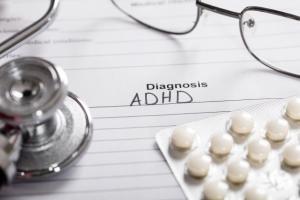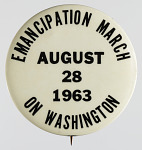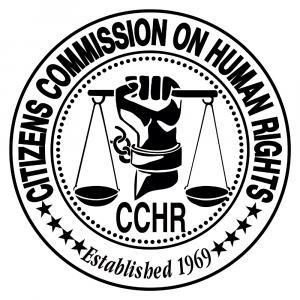New Government Report Provides Evidence Racism is Still Entrenched in States’ Mental Health Services

African Americans have long been disproportionately diagnosed with disruptive, defiant, and psychotic mental disorders, such as attention-deficit hyperactivity disorder (ADHD), schizophrenia, and oppositional defiant disorder (ODD).

For African American children aged 0 to 17 years, the most frequent mental health diagnosis was ADHD, a label given to four of every ten Black children who received mental health services in state programs in 2020.

Psychiatrists in the 1960s invented the term “protest psychosis” to stereotype Blacks participating in the civil rights movement as aggressive and suffering from a mental disorder.
Leading psychiatric and psychological associations have admitted creating and perpetuating the systemic racism now embedded in mental health practices.
The significant over-representation may be fueled by the systemic racism ingrained in psychiatric and psychological practices – racism admitted in 2021 by both the American Psychiatric Association and the American Psychological Association.
The often-repeated claim by mental health practitioners and organizations that African American communities are underserved is at odds with this government data.
In 2020, when African Americans made up just 13.5% of the U.S. population, they accounted for 19.6% of the individuals who received mental health services such as screening, assessment, and treatment for diagnoses of mental disorders from programs operated or funded by state mental health agencies.
“Blacks or African Americans accounted for 19.6 percent of individuals served in 2020, but just 13.5 percent of the 2020 U.S. population,” according to the Mental Health Annual Report 2015-2020, Use of Mental Health Services, published by the Substance Abuse and Mental Health Services Administration (SAMHSA) in the U.S. Department of Health and Human Services.
Psychiatrists, psychologists, and other mental health practitioners, who use the “mental disorders” found in the American Psychiatric Association’s Diagnostic and Statistical Manual of Mental Disorders to “diagnose” their patients, have long disproportionately diagnosed African Americans with disruptive, defiant, and psychotic mental disorders, such as attention-deficit hyperactivity disorder (ADHD), schizophrenia, and oppositional defiant disorder (ODD).
The SAMHSA report shows that racial disproportionality continues. African Americans comprised 33.6% of the individuals diagnosed with schizophrenia or other psychotic disorders and 21.4% of those diagnosed with ADHD – significantly higher than their proportion (13.5%) of the U.S. population.
For African American children aged 0 to 17 years, the most frequent mental health diagnosis was ADHD, with the label given to four of every ten Black children (39.4%) who received mental health services through state-run programs in 2020. While African American children comprised 18.7% of the children receiving these services, they represented 24.2% of children diagnosed with ADHD, 28.0% of children diagnosed with conduct disorder, and 27.4% of children diagnosed with oppositional defiant disorder.
Psychiatrist Thomas Insel, M.D., former director of the National Institute of Mental Health (NIMH), rattled the psychiatric field in his blog on the NIMH website in 2013 by publicly admitting psychiatry’s “diagnoses” lack validity. This means there is no scientific basis and no quality control possible for the diagnoses that are assigned to patients by psychiatrists and other mental health practitioners, allowing the racism now acknowledged to exist in psychiatric and psychological practice to creep into the diagnosing and the mental health treatment that follows.
That racism was finally acknowledged in a public apology in 2021 by the American Psychiatric Association (APA), in which the APA admitted psychiatrists’ role “in perpetrating structural racism” and confirmed that psychiatrists’ “appalling past actions, as well as their harmful effects, are ingrained in the structure of psychiatric practice.”
Those “appalling past actions” included “subject[ing] persons of African descent and Indigenous people who suffered from mental illness to abusive treatment, experimentation, victimization in the name of ‘scientific evidence,’ along with racialized theories that attempted to confirm their deficit status,” the APA confessed.
Examples of psychiatry’s racialized theories and abusive treatment and experimentation on African Americans can be found from the earliest days in U.S. history. Today’s overdiagnosing of African Americans with mental disorders related to aggression and psychosis can be traced back to psychiatrists in the 1960s, who invented the term “protest psychosis” to stereotype Blacks participating in civil rights protests as aggressive. Claims were made at the time that joining in protests was a symptom of schizophrenia. Ads for powerful antipsychotic drugs in psychiatric journals used images of angry Black men or African tribal symbols to influence the prescribing of antipsychotic drugs to African Americans.
In the 1970s, following riots in Watts, a predominantly black section of Los Angeles, the National Institute of Mental Health supported a “Violence Initiative” by psychiatrist Louis Jolyon West, the head of UCLA’s psychiatry department and Neuropsychiatric Institute. The initiative was a proposal to treat young black urban male offenders with psychosurgery (cutting into the brain to disable parts of it) and chemical castration (using drugs to reduce the drive or ability for sexual activity). Protests led by the Citizens Commission on Human Rights (CCHR) and others caused government funding for this project to be cut.
However, a second “Violence Initiative” supported by the NIMH gave psychiatric drugs to Blacks, including children as young as five, supposedly to research whether African Americans had a violence gene that could be controlled by psychiatric drugs.
Today, these racist views are still “ingrained in the structure of psychiatric practice,” as the APA admits, and in the mental health system that is based on psychiatric practices, as evidenced in the government data showing that African Americans are still disproportionately given diagnoses associated with aggressive, defiant, and psychotic behavior. They are also overly prescribed antipsychotic drugs, with Black men more likely to be prescribed excessive doses of antipsychotics.
The American Psychological Association issued its own public apology in 2021 for the “racism, racial discrimination, and denigration of people of color” committed by psychologists, after compiling what it called “a stunning chronology” of psychology’s history of racism. The apology acknowledges the role of psychologists “in promoting, perpetuating, and failing to challenge racism, and the harms that have been inflicted on communities of color as a result.”
Since its founding in 1969 as a human rights organization and mental health industry watchdog, the Citizens Commission on Human Rights has exposed and campaigned against racism and racial abuse in the mental health system. CCHR intensified its efforts in 2020 by forming the CCHR Task Force Against Psychiatric Racism and Modern-Day Eugenics, led by Rev. Fred Shaw, Jr. Its mission is to investigate and combat institutional racism and inform and empower the African American community with the facts about racism masked as mental health care. CCHR has also worked with the NAACP since 2003 in exposing the stigmatizing labeling and drugging of African American children and, with Rev. Shaw, in obtaining the three national NAACP resolutions related to these issues.
CCHR was co-founded by members of the Church of Scientology and the late psychiatrist and humanitarian Thomas Szasz, M.D., recognized by many academics as modern psychiatry’s most authoritative critic, to eradicate abuses and restore human rights and dignity to the field of mental health. CCHR has been instrumental in obtaining 228 laws against psychiatric abuses and violations of human rights worldwide.
The CCHR National Affairs Office in Washington, DC, has advocated for mental health rights and protections at the state and federal level. The CCHR traveling exhibit, which has toured 441 major cities worldwide and educated over 800,000 people on the history to the present day of abusive and racist psychiatric practices, has been displayed at the Congressional Black Caucus Foundation Annual Legislative Conference in Washington, DC, and at other locations.
Anne Goedeke
Citizens Commission on Human Rights, National Affairs Office
+1 202-349-9267
email us here
Fred Shaw, Jr. - The Fight for Human Rights in Mental Health

